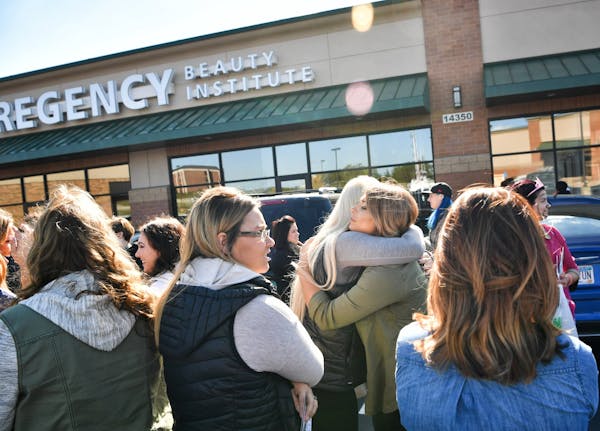Globe University and the Minnesota School of Business no longer will be allowed to participate in federal student aid programs, an unusual move that could seriously jeopardize the ability of the struggling for-profit schools to continue to operate.
In announcing the decision Tuesday, the U.S. Department of Education said the schools, which are based in Woodbury, committed fraud involving federal program funds by knowingly misrepresenting the nature of their criminal justice programs and the transferability of earned credits to other institutions.
"These callous acts of misrepresentation left many students without the credentials necessary for their chosen careers and no options to continue their studies at other postsecondary institutions," according to letters sent to the schools from the department. "Many graduates incurred thousands of dollars of debt but had limited options for successful job placement in their chosen fields."
Federal student aid, the lifeblood of revenue for many schools including Globe and Minnesota School of Business, will be shut off Dec. 31, the letters to the schools said. They were told they have until Dec. 20 to provide evidence to dispute the findings. Effective Dec. 31, students at both schools will no longer be able to use federal aid such as Pell Grants, Direct Loans or Iraq and Afghanistan Service Grants to pursue their studies.
In a prepared statement, Globe and Minnesota School of Business officials said they are working with other institutions to help students transfer their credits and continue their education.
The elimination of federal student aid also has an impact on state financial aid to remaining students of the schools, said Betsy Talbot, manager of private institution registration and licensing for the Minnesota Office of Higher Education. Talbot said Minnesota is evaluating its aid to the schools, particularly since federal aid eligibility is a requirement to obtain state aid.
"Schools are just cash-dependent on that flow of money," she said. "Schools just can't accommodate that loss of revenue."
Globe currently enrolls roughly 1,000 students at 10 locations in Minnesota, Wisconsin and South Dakota and received $28.4 million in federal student aid during the 2014-15 award year. MSB enrolls approximately 700 students at nine locations throughout Minnesota and received $25.5 million in federal student aid during the 2014-15 award year.
In September, the Office of Higher Education began taking steps to revoke the schools' authorization to operate after a judge ruled that the for-profit schools committed fraud in marketing and recruiting for their now-shuttered criminal justice program. State law prohibits a school from operating if it has been found to have committed fraud.
Since then, the schools have been unable to enroll new students but have remained in good standing during an appeal process.
"We are waiting for the court to issue its final decision," Jeff Myhre, whose family owns both schools, said in a statement released late Tuesday.
Schools sanctioned
In September, Globe and MSB were found to have unintentionally misled a fraction of students in their Minnesota criminal justice program. The program was discontinued in 2014 and represented less than 4 percent of the student body.
"It's unfortunate that the Attorney General and the Department of Education decided to sanction the schools in their entirety," Myhre said. "Instead of helping students in one program, their actions will eliminate options and tarnish the degrees of thousands of graduates."
Minnesota officials said they would try to minimize disruption by evaluating what they called "teach-out" plans and other options for the students still enrolled on campuses in the state. While the federal decision could move up the timeline, under the state discipline, the earliest the schools could be forced to close is December 2017, Talbot said.
"They [Globe and MSB] have been maintaining from day one that they are here for the students; they believe in their students; they want their students to be able to complete their programs," Talbot said. "Are they actually going to invest the resources to help these students graduate from their programs?"
Staff writer Mary Lynn Smith contributed to this report.
Mark Brunswick • 612-673-4434
8 months in jail for Blaine man who caused 120-mph crash hours after he was caught speeding

Daughter sues St. Paul, two officers in Yia Xiong's killing

